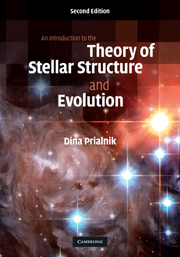Book contents
Summary
It is now a decade since the publication of the first edition of this book. Despite the large number of research papers devoted to the subject during this period of time, the basic principles and their applications that are addressed in the book remain valid and hence the original text has been mostly left unchanged. And yet a major development did occur soon after the book first appeared in print: the ‘solar neutrino problem’ that had puzzled physicists and astrophysicists for almost four decades finally found its solution, which indeed necessitated new physics. However, the new physics belongs to the theory of elementary particles, which must now account for neutrino masses, rather than to the theory of stars. Also worth mentioning is a major recent discovery that finally provides support to the theory proposed about four decades ago regarding the end of very massive stars in powerful supernova explosions triggered by pair-production instability: SN2006gy, the first observed candidate for such a mechanism. Thus the section on solar neutrinos is now complete and that on supernovae expanded.
Stellar evolution calculations have made great progress in recent years, following the rapid development of computational means: increasingly faster CPUs and greater memory volumes. Nevertheless, I have made use of new results only when they provide better illustration for points raised in text. For the most part, old results are still valid and this long-term validity is worth emphasizing; the theory of stellar structure and evolution, with all its complexity, is a well-established physical theory.
Information
- Type
- Chapter
- Information
- Publisher: Cambridge University PressPrint publication year: 2009
